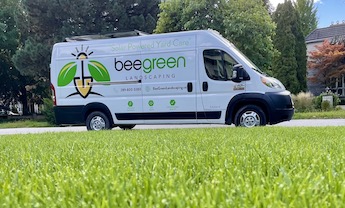When you’re looking to give your garden that extra edge, choosing the right types of mulch can make all the difference. It’s not just about keeping moisture in and weeds out; it’s about selecting the best type for your plants and soil. With a variety of options available, it can feel overwhelming, but you’re in the right place to demystify the choices.
From organic materials that enrich your soil to inorganic options that offer longevity, each type of mulch has its unique benefits. Whether you’re a seasoned gardener or just starting, understanding these differences is key to a thriving garden. Let’s dive into the world of mulch and find the perfect match for your garden needs.
Organic Mulch
When you’re considering mulch for your garden, organic options stand out for their dual functionality: not only do they enhance the appearance of your space, but they also contribute to the health of your soil. Organic mulch is made from naturally occurring materials such as bark, leaves, straw, and grass clippings. These materials decompose over time, releasing nutrients back into the soil and improving its structure and fertility.
Benefits of Organic Mulch
- Nutrient-Rich Soil: As organic mulch breaks down, it adds essential nutrients back into the soil, promoting healthier plant growth.
- Moisture Retention: It helps retain moisture in the soil, reducing the need for frequent watering and protecting roots from extreme temperatures.
- Weed Suppression: A thick layer of organic mulch can prevent weeds from sprouting, saving you time and effort in garden maintenance.
- Bark Mulch: Ideal for trees and shrubs, it’s long-lasting and provides a neat appearance.
- Straw Mulch: Perfect for vegetable gardens, it’s light and easy to spread, offering excellent insulation against temperature fluctuations.
- Leaf Mulch: Made from shredded leaves, it’s a nutrient-rich option that enhances soil structure as it decomposes.
- Grass Clippings: Readily available, they’re best used in a thin layer to avoid matting and should be applied fresh for direct nitrogen enrichment.
When choosing the right type of organic mulch for your garden, consider the specific needs of your plants and the local climate. Each type of mulch offers unique benefits and can significantly impact the health and appearance of your garden. Remember to apply a new layer of mulch annually or as it decomposes to continue enjoying its advantages.
Inorganic Mulch

In addition to organic mulch, there’s a whole world of inorganic options that can benefit your garden in different ways. While inorganic mulch lacks the nutrient-boosting properties of its organic counterparts, it’s durable, low maintenance, and can significantly improve your garden’s aesthetic.
Types of Inorganic Mulch
- Gravel and Stone: Perfect for creating a clean, modern look. These materials are excellent for drainage, making them ideal for use in pathways or around succulents and other plants that prefer dry conditions.
- Rubber Mulch: Made from recycled tires, rubber mulch is a long-lasting, colour-consistent option that’s great for playground areas. It’s also effective at suppressing weeds and doesn’t attract pests.
- Landscape Fabric and Plastic Sheeting: These barriers are used under other mulches to enhance weed suppression. They’re particularly useful in vegetable gardens and annual beds where soil warmth needs to be maintained.
Advantages
One of the biggest advantages of inorganic mulch is its longevity. Unlike organic mulch, which needs to be replaced regularly, inorganic options can last for years, making them cost-effective in the long run. Additionally, they don’t decompose, so they don’t need to be replenished as often.
However, it’s crucial to consider the impact on soil health. Since inorganic mulches don’t enrich the soil, supplemental fertilization might be necessary to ensure your plants receive sufficient nutrients.
Choosing the right type of inorganic mulch depends on your specific garden needs and aesthetic preferences. Whether you’re looking for durability, ease of maintenance, or simply a decorative touch, there’s an inorganic mulch option to suit every gardener’s requirements.
Bark Mulch

When you’re exploring various mulch options for your garden, bark mulch stands out for its aesthetic appeal and practical benefits. This type of mulch is crafted from the bark of different trees, with pine, cedar, and cypress being among the most popular choices. Each type offers unique benefits, and selecting the right one can significantly enhance your garden’s health and appearance.
Bark mulch is renowned for its longevity, making it a cost-effective solution for gardeners looking to minimise maintenance efforts. Unlike its faster-decomposing counterparts, bark mulch breaks down slowly, enriching your soil gradually with organic matter. This slow decomposition process ensures your garden enjoys a steady supply of nutrients over time.
Another compelling reason to opt for bark mulch is its ability to retain soil moisture. This attribute is particularly beneficial during dry spells, as it helps maintain soil hydration, reducing the need for frequent watering. Furthermore, bark mulch acts as a natural insulator for your soil, keeping it cooler in summer and warmer in winter. This temperature regulation aids in the protection of plant roots from extreme conditions, fostering a healthier garden environment.
Beyond its practical merits, bark mulch also scores high on aesthetic appeal. Its natural, earthy appearance harmonises with virtually any garden design, adding depth and texture to your landscape. Whether you prefer the rich, dark tones of cedar or the lighter hues of pine, bark mulch can dramatically enhance the visual appeal of your garden space.
Choosing the right bark mulch involves considering the specific needs of your garden as well as your personal preferences. While cedar mulch is prized for its pleasant aroma and insect-repelling properties, pine bark nuggets offer a chunkier texture that’s ideal for larger areas. Regardless of your choice, integrating bark mulch into your garden care routine can yield considerable benefits for soil health, plant vitality, and overall garden aesthetics.
Rubber Mulch

When exploring the realm of mulching options, Rubber Mulch stands out for its unique attributes and benefits. This type of mulch, often black mulch, made from recycled tires, presents a sustainable option for gardeners and landscapers who are environmentally conscious. Unlike organic mulches, rubber mulch won’t decompose, which means it doesn’t need frequent replacement. This longevity can save you both time and money in garden maintenance.
One of the primary advantages of rubber mulch is its exceptional ability to retain moisture in the soil. By acting as a barrier to evaporation, rubber mulch ensures your plants receive the hydration they need without the constant need for watering. This feature is particularly beneficial during dry periods or in regions prone to water scarcity.
Rubber mulch also excels in weed control. Its dense composition effectively blocks sunlight from reaching the soil surface, thereby inhibiting the germination and growth of unwanted plants. This property significantly reduces the time you’ll need to spend weeding and makes your garden maintenance much more manageable.
Safety is another aspect where rubber mulch shines. Its soft and springy nature makes it an ideal choice for playgrounds or areas around children’s play equipment. Not only does it reduce the risk of injuries from falls, but it also provides a clean and attractive surface that enhances the aesthetic appeal of outdoor spaces.
Despite its many advantages, it’s important to weigh the pros and cons of rubber mulch in relation to your specific garden needs. Some gardeners have concerns about potential chemical leachates or the impact on soil temperature, given rubber’s heat-absorbing properties. These factors may influence the suitability of rubber mulch for certain plants or climates.
In choosing the right mulch for your garden, consider your primary objectives—whether it’s moisture retention, weed suppression, or safety—and how rubber mulch aligns with those goals. Remember that the success of your garden lies in the balanced integration of all its elements, mulch being a key component.
Conclusion
Choosing the right mulch for your garden hinges on understanding your specific needs. Rubber mulch stands out as a durable and sustainable option, especially for areas where safety and minimal maintenance are priorities. Its ability to retain moisture, suppress weeds, and provide a safer play environment makes it an excellent choice for many. However, it’s crucial to weigh its benefits against concerns like chemical leachates and heat absorption. Ultimately, the success of your garden depends on selecting a mulch that aligns with your goals, whether it’s for aesthetic appeal, functionality, or both. With the right information and careful consideration, you’ll find the perfect mulch to enhance your garden’s health and beauty.
Frequently Asked Questions (FAQ)
What is Rubber Mulch?
Rubber mulch is a sustainable mulching option created from recycled tires, designed for garden and playground use. It offers several benefits, including moisture retention, weed control, and safety features.
What are the benefits of using Rubber Mulch?
Rubber mulch provides longevity, helps retain soil moisture, prevents weed growth, and enhances safety in playground areas due to its cushioning properties. It’s also low-maintenance compared to organic mulches.
Can Rubber Mulch decompose?
No, unlike organic mulches, rubber mulch does not decompose. This characteristic means it doesn’t need to be replaced frequently, saving time and effort in garden maintenance.
Are there any concerns with using Rubber Mulch?
Yes, there are some concerns, including the potential for chemical leachate release into the soil and its tendency to absorb and retain heat, which might not be suitable for all plants.
How do I choose the right mulch for my garden?
Choosing the right mulch involves considering your garden’s specific needs, such as moisture retention, weed suppression, or safety. Rubber mulch might be ideal for playgrounds and areas where longevity and low maintenance are prioritized.


